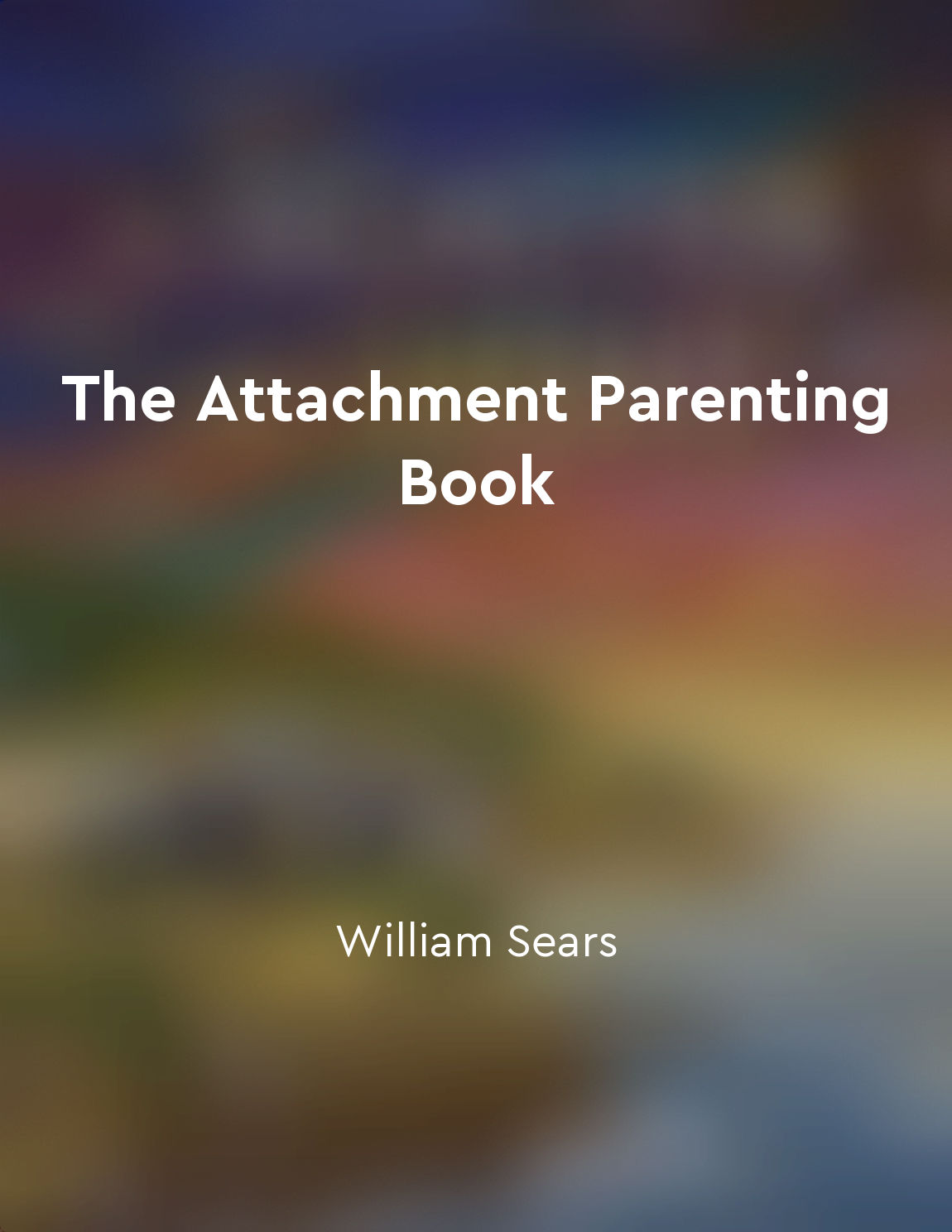Parenting is an instinctual and nurturing responsibility from "summary" of The Baby Book, Revised Edition by William Sears,Martha Sears,Robert Sears,James Sears
Parenting is a blend of instinct and learned behavior. While parenting skills can be taught and refined, there is an innate aspect to parenting that is driven by our primal instincts as human beings. From the moment a baby is born, parents are biologically wired to care for and nurture their child. This instinct is evident in the way parents instinctively respond to their baby's cries, seeking to soothe and comfort them. Nurturing is a fundamental aspect of parenting. It involves providing for a child's physical, emotional, and psychological needs in a loving and supportive manner. Nurturing encompasses feeding, bathing, dressing, and comforting a child, as well as fostering their emotional well-being through affection, attention, and positive reinforcement. Nurturing also involves setting boundaries and providing guidance to help children learn and grow. Responsibility is a key component of parenting. Parents are entrusted with the care and upbringing of their children, a role that requires dedication, patience, and selflessness. It is a parent's responsibility to provide for their child's basic needs, protect them from harm, and teach them values and life skills. Parenting is a lifelong commitment that requires constant attention and effort.- While nurturing helps us create a loving and supportive environment for them to thrive. By combining these two elements, parents can provide the best possible care for their child and help them grow into happy, healthy, and well-adjusted individuals. Ultimately, parenting is a deeply rewarding experience that allows us to form strong bonds with our children and shape their future.
Similar Posts
Teach problemsolving skills
In order to raise effective problem solvers, parents must teach their children how to think critically and creatively in the fa...
Connect with the beauty of nature for inner peace
Connecting with the beauty of nature is an essential practice for finding peace within ourselves. When we take the time to imme...
Acknowledge children's emotions without judgment
When children express their feelings, it's important to acknowledge them without passing judgment. This means accepting their e...
Abandon ideology
Ideology is a dangerous thing. It can blind us to the complexities of reality, causing us to see the world in black and white w...
Use warning as a first step
When it comes to discipline, many parents tend to jump straight to consequences without giving their children a fair warning. T...
Fostering emotional regulation skills
Fostering emotional regulation skills involves helping children develop the ability to manage their emotions in a healthy and c...

Peer relationships should not take precedence over family bonds
In our society, there is a prevailing belief that peer relationships should take precedence over family bonds. We often hear pe...
Fostering a sense of gratitude
One way to help your child develop a sense of gratitude is by modeling gratitude yourself. Children are like sponges, soaking u...

Be present and attentive to your child
To truly connect with your child and build a strong attachment, you must be present and attentive. This means giving your child...


